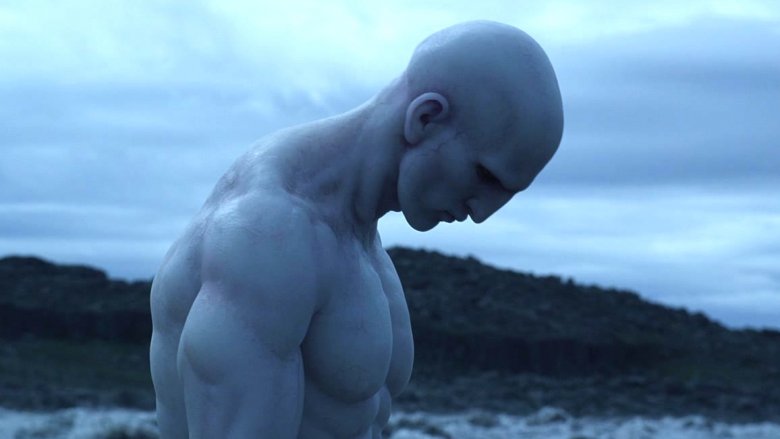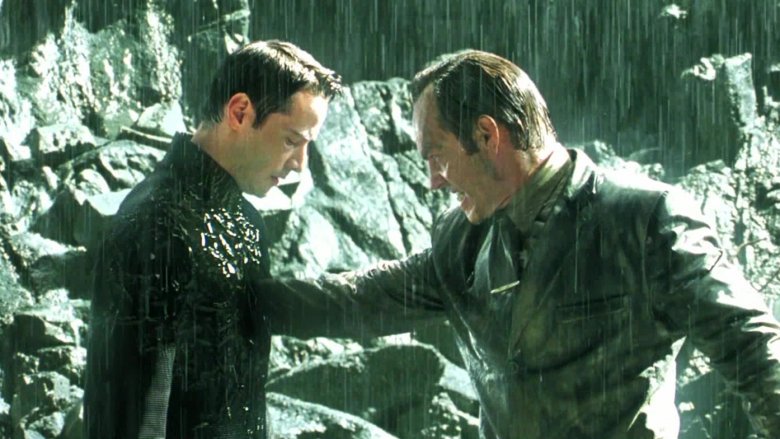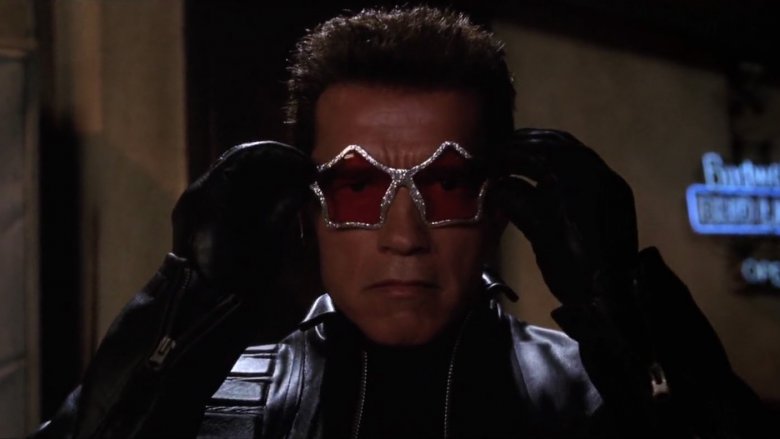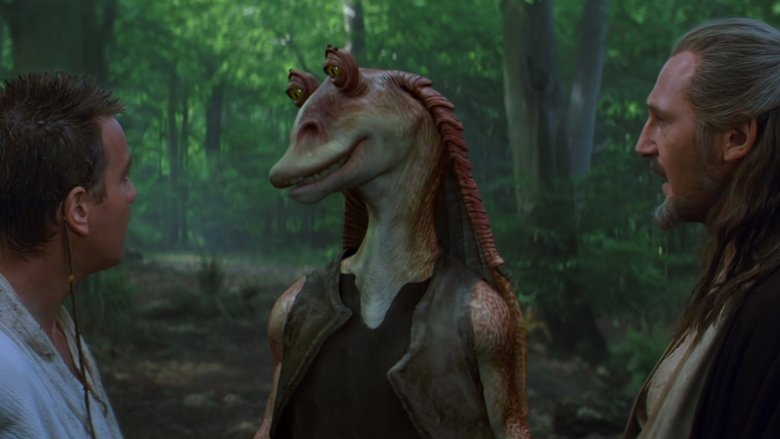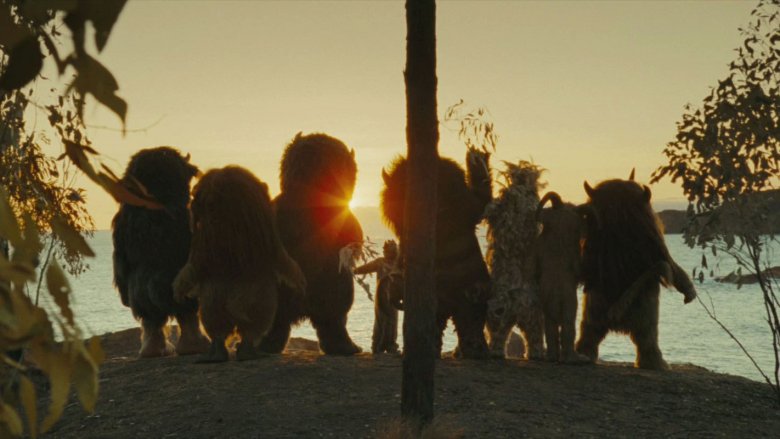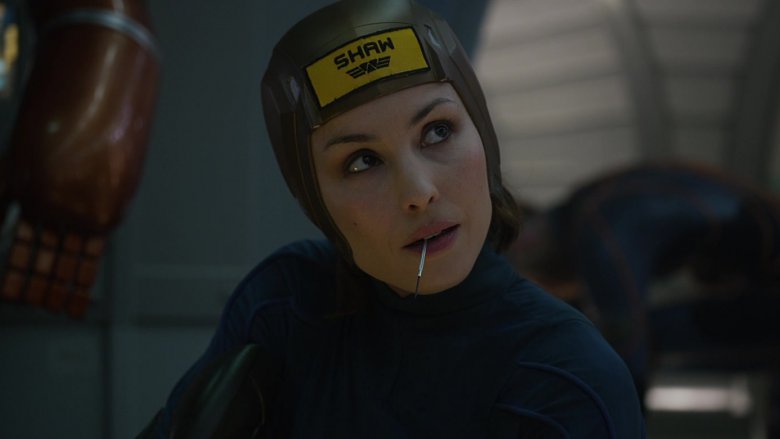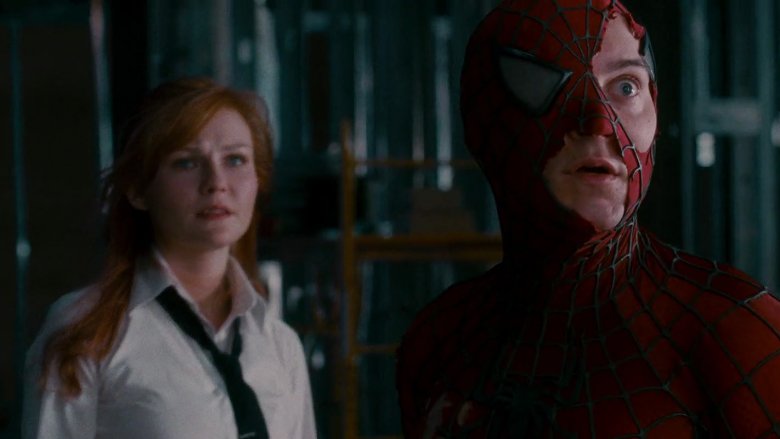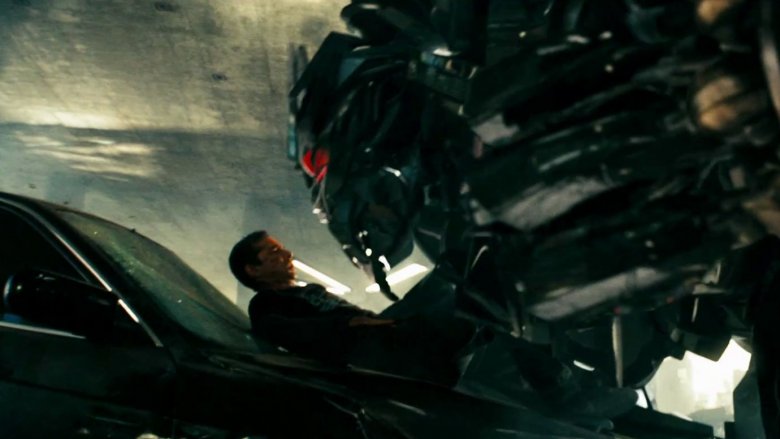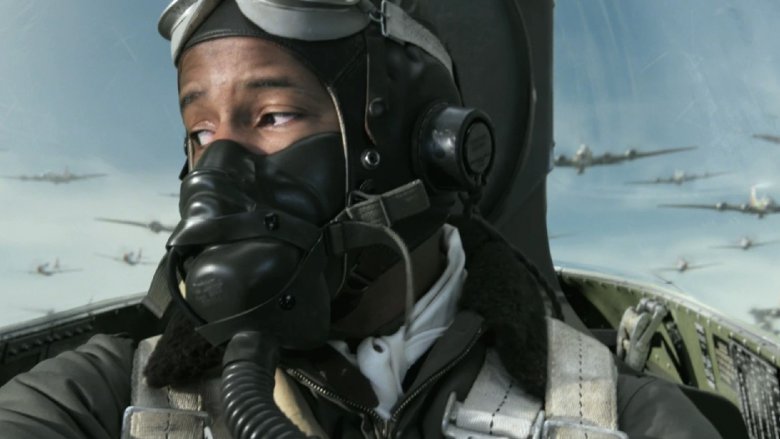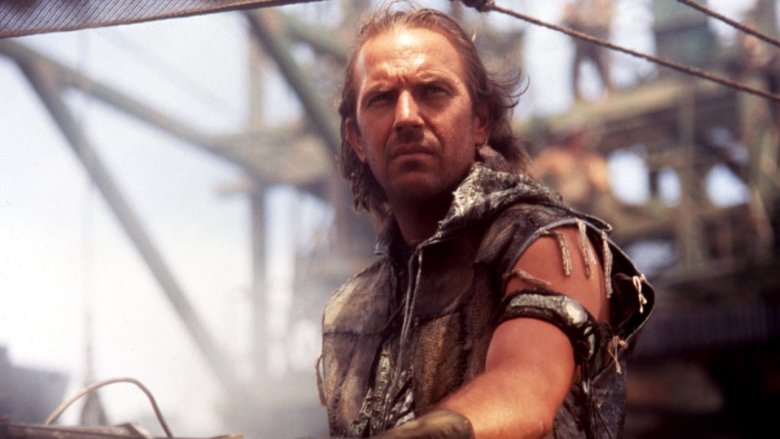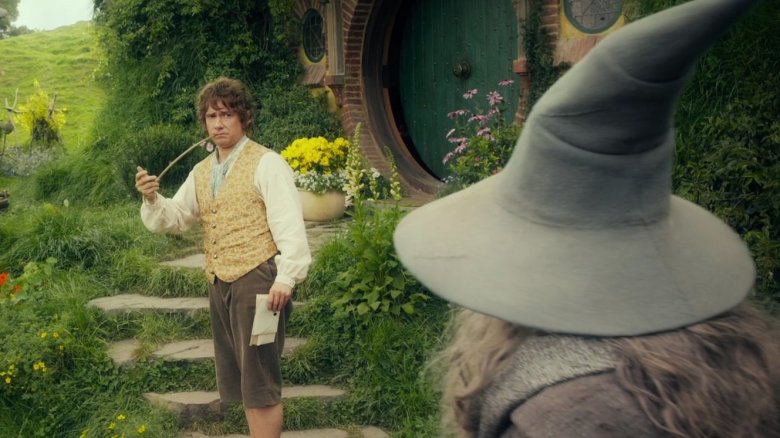Fan Edits Of Movies That Were Better Than The Original
Modern movie fans have gotten used to the idea of extended, unrated and director's cuts. It might seem like a double-dipping cash grab to some, but getting excited about a film only to be let down in the theater is a common occurrence, and when the director had a different vision for that feature, we're occasionally willing to pay to see it.
But what happens when the director's cut still disappoints? What about films that never even get a director's cut at all? That's where the fans step in, working tirelessly to edit high-profile disappointments into something more coherent and enjoyable. These are the fan edits that turned out much better than their theatrical counterparts.
The Matrix DeZIONized
The Matrix is one of the most influential movies of modern times. Not only did it repopularize the sci-fi genre at the turn of the century, but it had a huge impact on the style of Hollywood action films. Sibling directors the Wachowskis reproduced some of the first installment's impressive fight choreography in the two sequels, but they stretched audiences to breaking point with the plot. While second chapter The Matrix Reloaded has slowly worked its way into the hearts of critics, the trilogy's conclusion, Matrix Revolutions, remains widely regarded as a missed opportunity, with many fans sharing the belief that the second two movies, which were shot back to back, should have been one.
Fan editor team 'CBB' turned that shared vision into a reality with The Matrix DeZIONed, which combines Reloaded and Revolutions to come up with a thoroughly enjoyable single sequel. According to the creators, the trick to the edit was simply removing all the scenes relating to Zion and the war for man's last city, instead making Neo's in-Matrix battle with the agents the main focus. "Leaving out the Zion scenes was a major improvement of pace and plot development," they explained. "And the most interesting thing about it is that these scenes are not missed when left out."
The new runtime shows just how much footage was deemed unnecessary, with the fan edit lasting 146 minutes. The two sequels ran at 138 and 129 minutes respectively, which means a whopping 120 minutes got the chop.
Terminator 3: The Coming Storm
The second sequel to James Cameron's sci-fi classic The Terminator may have a respectable critic score of 70 percent on Rotten Tomatoes, but the audience score tells a different story. Only 46 percent claimed to have enjoyed 2003's Rise of the Machines, with words like "unnecessary," "unwanted," and "soulless" popping up regularly in the website's fan review section. The chief complaint was the contradictions to the previous two movies, with T3 introducing a new timeline in which the original 1997 Judgment Day is prevented and replaced by one taking place in 2004.
Conflicting dates were just one issue that fan editor 'Uncanny Antman' successfully addressed in their version of the film. Terminator 3: The Coming Storm is far closer in spirit to its predecessors than the cut released in cinemas, having removed moments of "sitcom hilarity" (like the hearse door coming off its hinges when the Terminator opens it) and axing some cheesy dialogue (including two separate references to the famous "I'll be back" line.)
Some subtle trimming of the film's crummier CGI moments also adds to the overall quality of this edit, which went down well with other fans on FanEdit.org. "As far as edits go, this is a nearly flawless one and fixes the movie wholly," one glowing review read. "That's not to say it's on par with T1 or T2, but it's a solid entry into the series now. If I had to rate the movie itself after the edit, it's a solid 7/10."
Star Wars: Episode 1.1 - The Phantom Edit
One of the most famous fan edits, The Phantom Edit takes the widely panned Star Wars: Episode I – The Phantom Menace and manages to turn it into an entertaining movie. It's something you have to see to believe, but it's out there, still a hot property on the bootleg circuit decades after it was cut. Director and avid Star Wars fan Kevin Smith was rumored to have been behind this shorter version of the film, but he claimed that while he'd seen it, he didn't make it.
Soon copycat versions appeared, with other fans keen to share their own take on how Episode I should have played out—even former That '70s Show star Topher Grace was at it, re-editing all three prequels into a single 85-minute film. The fad gathered so much steam that George Lucas responded via his spokeswoman, who said he wouldn't be watching any of the new edits and reminded fans that "massive duplication and distribution" of copyrighted material was an infringement.
Many re-edits later the fad eventually died, but the definitive fan edit remains the one first put together by Mike J. Nichols, named as the creator in articles by The Washington Post and the Los Angeles Times. Nichols' version cut away almost all of Jar Jar Binks' scenes and, in his own words, reworked the film "with the care and attention of a Lucas team member" while "concentrating on creating the storytelling style that Lucas originally made famous."
Where the Wild Things Are: The Wild Rumpus Edition
Spike Jonze's big-screen adaptation of classic children's picture book Where The Wild Things Are created a lot of buzz with its epic trailer set to the backdrop of Arcade Fire anthem "Wake Up," but reaction to the final product was mixed. While the film received largely positive reviews, audiences weren't so sure, as the discrepancy in the critic and audience scores on Rotten Tomatoes highlights. Jonze fans were split on the outcome, with many feeling the substance that usually accompanies his style was missing.
Fan editor 'njvc' decided the film needed to be "trimmed down to the essentials," and that involved making 26 minutes of cuts. What makes The Wild Rumpus Edition so much more enjoyable isn't a cutthroat approach to reducing the runtime, however: it's the addition of a new soundtrack inspired by that original trailer. "In the film itself, Max was a precocious little boy, sometimes pretty annoying—pretty much the same as the boy in the story," the creator said. "But to me that first trailer promised so much more. A story of a sad, lonely, quiet boy, and his imaginative escape to the only place he feels able to cope with life—the world of the Wild Things. "
As well as Arcade Fire's "Wake Up," songs by Fleet Foxes, Nick Drake, Bon Iver, and Sigur Ros were added to the soundtrack, which helped to recreate the vibe of the world that first trailer showed us all too briefly.
Prometheus: Giftbearer
He may be the mastermind behind the Alien franchise, but Ridley Scott is as human as the crew members he loves sending to their grisly fates. The director has admitted he missed the mark with 2012 prequel Prometheus, recognizing that fans were frustrated with the direction it ultimately took. "They wanted to see more of the original [monster] and I thought he was definitely cooked, with an orange in his mouth," he said. "So I thought: 'Wow, OK, I'm wrong.'" He used those mistakes as a learning curve when writing the next installment in the franchise, Alien: Covenant, though Prometheus was doomed to be the black sheep of the series.
That didn't sit right with fan editor 'Severian,' whose cut of the film utilizes deleted scenes and supplementary footage to address many of the plot holes that have frustrated fans for years—including the often mocked moment when Shaw and Vickers flee a giant rolling structure in a straight line when stepping two feet to the side would have saved them. Prometheus: Giftbearer also loses the scenes with Shaw jumping over the widening plates in her effort to survive, given that "she's already been asked to do so much in her post-operation state" at that point in the film.
This version also chooses not to open with the Engineers (beginning instead with Weyland and Shaw driving) and uses an alternate end conversation between David and Shaw, which better suited the tone of the movie.
Spider-Man 3: Redemption
Before the Marvel Cinematic Universe existed, Sam Raimi's Spider-Man movies offered rare examples of how comic book films could be done right—though the Evil Dead director fell at the last hurdle when trying to complete his perfect Spidey trilogy. Compared to the two movies that came before it, Spider-Man 3 was a mess, far too preoccupied with giving its three villains screentime when it should have been concentrating on bringing Peter Parker's arc with Harry Osborn to a satisfactory end.
Veteran film critic Roger Ebert was a big fan of Spider-Man 2 (he called it the best superhero movie since 1978's Superman), but his review of the third and final Toby Maguire-led outing was scathing. "The great failing of Spider-Man 3 is that it failed to distract me from what a sap Peter Parker is," he said, lamenting (along with pretty much everyone who saw the film) how ridiculous Maguire looked strutting down the street with an emo combover. This scene, along with some other misguided attempts at humor, were cut out in a "must watch, incredible" fan edit by 'Badscooter.'
Spider-Man 3: Redemption strips the story down and "gives more focus to the journeys of Peter and Harry, and how both find redemption for themselves," according to the creator. Gwen Stacey finds herself bumped to a supporting character, all references to Sandman being Uncle Ben's killer have been removed, and Harry chooses to help Peter of his own free will.
Transformers: Reformatted
If someone told you that they'd cut almost half an hour of footage from a Michael Bay movie without removing any of the explosions, you'd probably have them committed—but you'd regret it after watching the 'Kevinicus' edit of 2007's Transformers. This is the same fan editor behind Avatar: Recycled (which does away with the "extreme environmental and political overtones" of the movie) and The Kung Fu Kid (a "tighter" version of Jaden Smith's Karate Kid), though neither of those re-edits are quite as enjoyable as Transformers: Reformatted.
The reviews weren't kind to Transformers when the tentpole popcorner came out a decade ago, kicking off what would become a divisive but wildly profitable franchise. The five films released thus far have grossed over $1.3 billion, though despite viewers continuing to flock to cinemas in droves, Bay can't catch a break with the critics. "Films directed by Michael Bay are usually like being shouted at by a halfwit for two and a half hours," The Times wrote, "and Transformers is no exception."
Removing dialogue from such a film might seem like a good way to dumb it down even further, though what this re-edit does is focus on the stuff Bay does well—the action. "My intention was to cut out as much material from the film that I thought didn't work or detracted from the important aspects," the creator said. "I also wanted to remove what I considered were some loose ends and/or plot holes within the movie."
Red Tails Redux
Almost every review of Red Tails, a 2012 war film about a group of African American United States Army Air Forces servicemen during WWII, mentioned that it was "well-intentioned," but this simply wasn't enough for most critics. The film only managed a 41 percent rating on the Tomatometer, with Rotten Tomatoes-approved critics concluding that the movie "suffers from one-dimensional characters, corny dialogue, and heaps of clichés."
George Lucas (who, as we've already established, is no stranger to having his films tinkered with by disgruntled fans) lost a ton of money fronting the cash for this flop, which ran into problems at every stage of its protracted production. In the end, Lucas had to step in and reshoot a good chunk of director Anthony Hemingway's work himself, and too many cooks seemed to spoil the broth. "It was a question sparked by the first two Star Wars sequels: how much of Red Tails is the director's vision, and how much is down to producer George Lucas?" Time Out asked in their two-star review.
Fan edit Red Tails Redux cuts 31 minutes of footage, bringing the runtime down to a more sensible hour and a half. "This version of the film eliminates two poorly received subplots, the love story and the prison escape," creator 'SeventhWard' said. "Red Tails Redux also features trims to most of the juvenile humor and on-the-nose dialogue as well as several editorial fixes to improve structure and pacing."
Waterworld: The Ulysses Cut Revised Edition
Looking back, it almost seems as though Universal really didn't want Waterworld to succeed, despite having sunk $175 million into it. The film pulled in less than $90 million domestically and is remembered as one of the most high-profile box office bombs of all time, though even when the studio had the chance to prove that there was a good film in there somewhere (and recoup some cash in the process) they messed it up. When they released the so-called Extended Edition of the Kevin Costner flop on DVD they didn't fool anyone—all they'd done was repackage a version cut for TV.
This meant that all the violence, profanity and nudity had been replaced with cutting room floor fodder, something fan editor 'Zaaacharias' couldn't abide. "I was so p***** off when I found out that the Extended Edition—which I believed to be the "Ultimate Edition" of Waterworld—was a censored, softened edit for TV," the creator said. "Universal wasn't able to release a proper version on DVD so I thought I had to do it on my own."
All it took to make Waterworld a genuinely enjoyable experience was a little bit of editing 101, with simple changes like the improvement of some sketchy sound effects and the removal of a continuity error doing wonders. Of course, the restoration of all the violence, profanity and nudity helped some, too.
The Hobbit: An Unexpected Journey - The Arkenstone Edition
If there's one director who knows a thing or two about a director's cut, it's Peter Jackson. The extended editions of the New Zealander's Hobbit trilogy exceed 9 hours when watched back to back, extraordinary when you consider Tolkien's book was only 320 pages long. The Arkenstone Edition of An Unexpected Journey addresses this issue by taking a 'less is more' approach to the first film in the franchise (chronologically speaking).
This highly rated fan edit by 'Kerr' came with the tagline "Some stories deserve a little less embellishment" and was based on three principles: Making sure it remained Bilbo's story, worked as an opening chapter in the hexalogy, and stayed compatible with the other movies. The latter objective was achieved despite 42 minutes being cut from the runtime, with the creator removing many unneeded nods to the Lord of the Rings movies, including Elijah Wood's cameo as Frodo Baggins.
The Arkenstone Edition became so popular that it ended up inspiring other fan editors to create their own sequels, with the equally popular The Hobbit: Fire and Water winning over fans. "I think this edit works beautifully as a spiritual successor to Kerr's AUJ Arkenstone Edition," one reviewer wrote. "Your restoration of the Battle of Laketown as the ending allows the narratives of this film to reach their appropriate end points before going into the next film, and the entire scene is vastly more enjoyable coming off the heels of what preceded it."
What we'd like to see get a fan edit next
There have been plenty of high-profile disappointments over the last few years that could do with a once-over from a dedicated fan editor, but one recent picture that looked as though it was on to a sure thing only to end up missing the mark is Passengers. This Chris Pratt and Jennifer Lawrence sci-fi romance failed to win over the critics (the Rotten Tomatoes consensus concludes that their chemistry isn't enough to overcome a fatally flawed story) and bombed at the box office, but one viewer has shared a simple idea that could potentially fix this broken film.
A video essay called Passengers, Rearranged argues that Morten Tyldum's movie would be a far more interesting watch if the big reveal (if you haven't seen it and plan to, click away now) of Pratt waking Lawrence up from her hibernation 90 years early was placed in the last act. As it is, this shocking moment of selfishness comes in the middle of the movie, but the video suggests that Lawrence should have been seen waking up at the beginning with the truth withheld from her (and the audience) for greater effect upon reveal later.
Whether this small tweak would transform the entire movie remains to be seen, but it sure seems like there's a decent film lurking in there somewhere, and we're waiting for someone with the time, energy and editing chops to prove us right.
